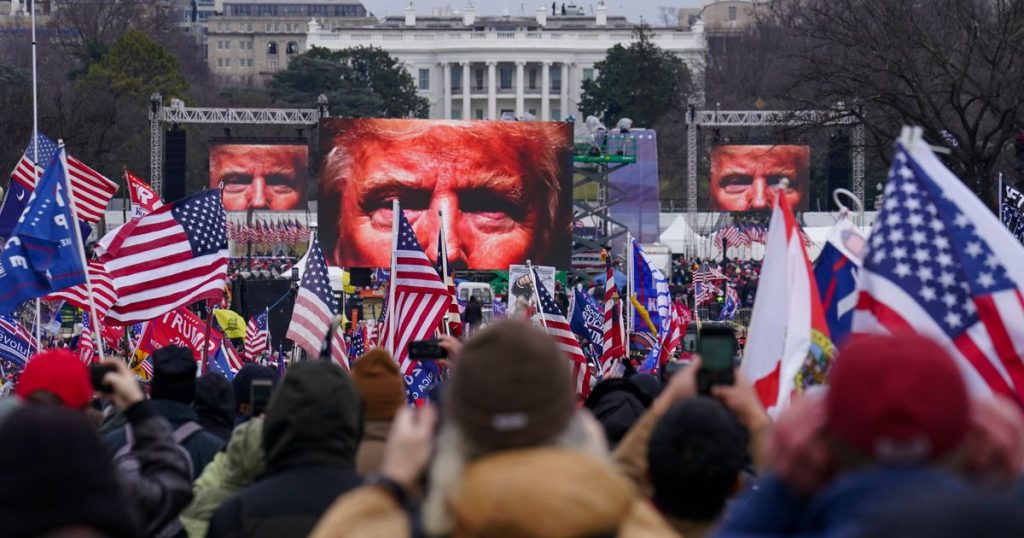Federal prosecutors are urging the Supreme Court to reject Donald Trump’s claim of immunity from prosecution for his actions leading up to and on Jan. 6, 2021. The prosecutors argue that the Constitution does not give a president the power to engage in crimes such as conspiracy, obstruction, and voter fraud. They highlight the severity and undemocratic nature of the alleged crimes, stating that Trump’s conduct is unique in American history. If the Supreme Court agrees, Trump could potentially go to trial on these charges before the November election.
Trump faces charges of conspiring to defraud the United States, obstructing an official proceeding, and depriving millions of Americans of their right to have their votes counted. The indictment outlines how Trump’s false claims about the 2020 election being stolen and the subsequent Capitol attack were part of a scheme to retain power. The violent events of Jan. 6 resulted in numerous injuries to police officers, one death, and several suicides. Despite initially disavowing the violence, Trump has since glorified those charged with assaulting police officers, portraying them as heroes.
In their defense, Trump’s lawyers argue that he should not be prosecuted based on the lack of precedent for prosecuting former presidents. They claim that allowing Trump’s cases to proceed would set a dangerous precedent for future presidents, leading to potential harassment through prosecutions. However, prosecutors dismiss these arguments, noting existing safeguards to protect former presidents and the lack of specificity in excluding presidents from federal criminal statutes. They also point out that Trump’s assertions regarding prosecutions against former presidents are unfounded.
In addition to the federal charges related to the coup attempt, Trump is facing multiple other prosecutions. He is being prosecuted in Georgia for efforts to overturn his election loss, in a separate federal case for withholding secret documents, and in New York for falsifying business records. The New York case is set to begin jury selection in April, while Trump has already been found liable in a civil case for sexually abusing writer E. Jean Carroll against her will. The federal judge in that case determined Trump’s actions constituted rape in modern terms.
Overall, the prosecutors are seeking to hold Trump accountable for his actions leading up to and on Jan. 6, 2021, despite his claims of immunity as a former president. If the Supreme Court agrees, Trump could face trial for the alleged crimes before the upcoming election. The severity and undemocratic nature of the charges, along with Trump’s repeated lies and efforts to retain power, have led to a significant legal battle that could have far-reaching implications for future presidents and the rule of law.


